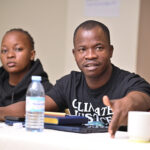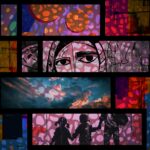This article was published more than 8 years ago.
Courage. Resilience. Determination. Tenacity. Grit.
Whatever you choose to call it, the qualities that compelled Wai Wai Nu to take the tragic denial of her rights – and subsequent imprisonment during what should have been her university years – and turn that experience into a force for good is nothing short of extraordinary.
In 2005, at just 18 years old, Wai Wai was arrested, tried without legal representation in a closed-door hearing, and sentenced to 17 years in Burma’s infamous Insein Prison. Her crime? Her father was an outspoken political activist who publicly criticized the military junta ruling the country. Further, she and her family are politically active Rohingya Muslims, an ethnic and religious minority subject to widespread violence and discrimination.
In Burma, the Rohingya have little to no legal protections. The government uses a nationality law passed in 1982 to arbitrarily deny the nearly one million Rohingya the rights of citizenship—restricting their ability to travel in the country and preventing access to basic services like education and healthcare. The dehumanizing effects of these restrictions make the Rohingya population vulnerable to such extreme violence that human rights experts are now calling the situation ethnic cleansing.
Turning Point
While in prison, Wai Wai encountered countless young women and listened to their stories. Like her, some were tried without representation. Others were arrested for prostitution, gambling, or drugs. Many were convicted of crimes they turned to because of extreme poverty, coercion, or both. Wai Wai became determined to champion the rights of women, particularly ethnic and religious minority women.
Instead of succumbing to the hardship she faced, Wai Wai channeled her energy into changing the unjust system that had stolen years of her life. Today, Wai Wai is the director of the Women’s Peace Network-Arakan (WPNA), a grantee of the Fund for Global Human Rights.
As a human rights organization, WPNA seemingly does it all. Their staff hold women’s empowerment trainings, offer legal education seminars, and organize human rights and peacebuilding activities to promote mutual understanding among Burma’s ethnic groups. They also advocate domestically and internationally to secure rights, including the legal recognition of identity and full citizenship for Rohingya people in Burma.
Despite the grave persecution of Rohingya Muslims in Burma, WPNA is the only Rohingya-led human rights organization in the country. By directly amplifying the community’s voices, WPNA can uniquely lead international advocacy, conduct outreach to Burmese society at large, and develop strategies to protect and promote their human rights.
Earlier this year, Wai Wai served as part of the delegation that successfully persuaded the Human Rights Council to approve the formation of a fact-finding mission to investigate human rights violations in Burma, particularly in the Rakhine State. This is a huge step in the long struggle to obtain justice for the Rohingya people who have endured abuses for decades.
The Fund for Global Human Rights is proud to support the work of WPNA as they seek justice and endeavor to change a tragically broken system.


